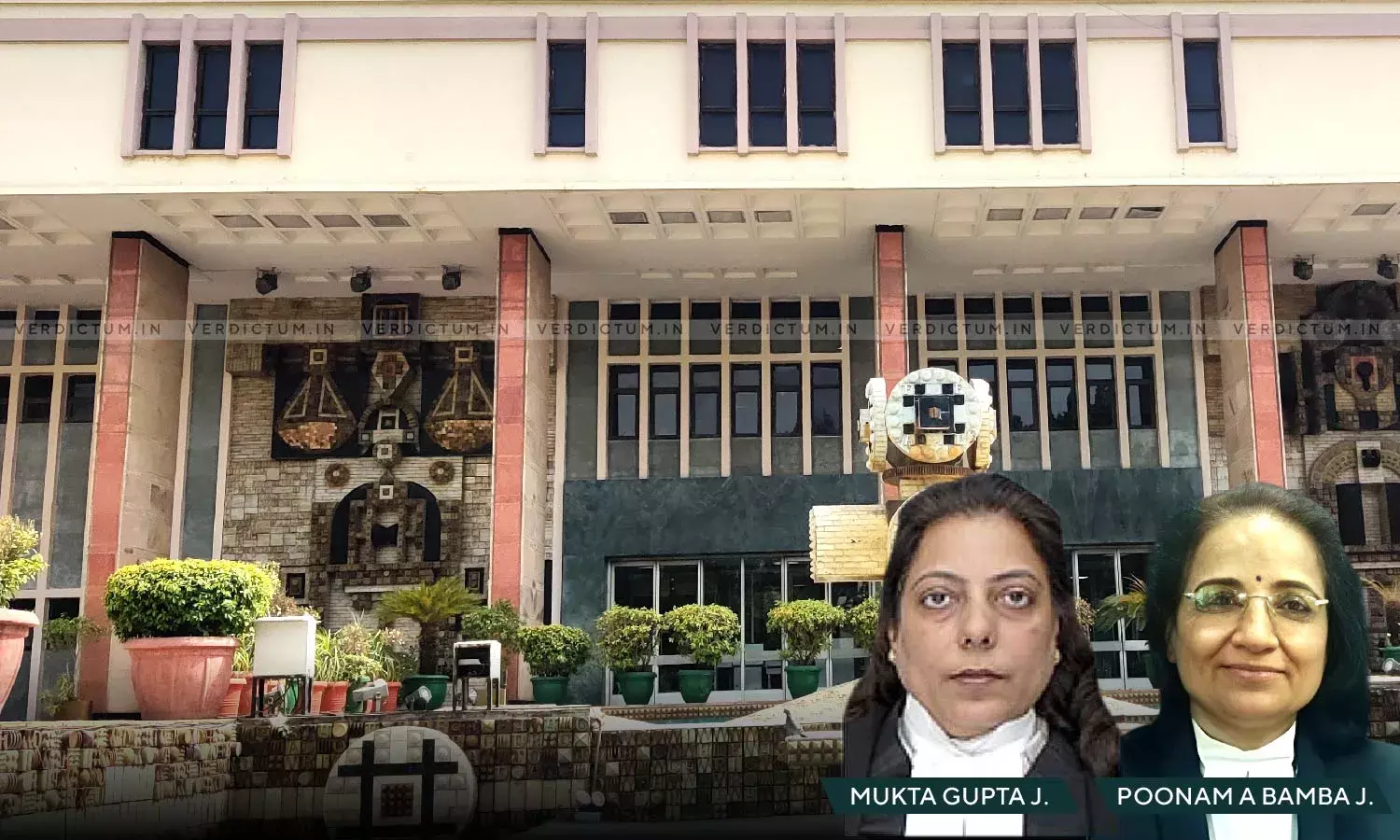Delhi HC Acquits A Father Convicted Of Murdering His Own Daughter, Observes Case Couldn't Be Proved Beyond Reasonable Doubt

The Delhi High Court has acquitted a man who was convicted of killing his daughter on account that the prosecution could not prove its case beyond a reasonable doubt.
A Division Bench comprising Justice Mukta Gupta and Justice Poonam A. Bamba held, “… this Court finds that merely based on the DNA analysis evidence as noted above, opining vide Ex.PW-50/B that the dead body was of the biological daughter of the appellant, it cannot be held that the prosecution has proved its case beyond reasonable doubt against the appellant of having committed the murder of Gulshama punishable under Section 302 IPC as also offence punishable under Section 201 IPC.”
The Bench noted that the exact time since death also could not be proved, which was essential to shift the onus under Section 106 of the Indian Evidence Act on the accused.
Advocate Rakesh Agrawal appeared on behalf of the appellant/accused while APP Laksh Khanna appeared on behalf of the respondent/State.
Brief Facts -
The appellant/accused had challenged the judgment of the Trial Court whereby he was held guilty of the murder of his daughter and was directed to undergo rigorous imprisonment for life along with a fine of Rs. 5,000/- under the provisions of the IPC. In 2013, information was given to the police about a dead body in a gunny bag in a nullah, and on reaching the spot, one plastic bag containing a human skeleton was found. From the bag of the skeleton, one lady’s shirt, salwar, and undergarments worn by the skeleton were recovered.
The dead body was sent for a post-mortem examination and as the skeleton could not be identified, the same was got electrically cremated and thereafter, on receipt of secret information, it came to the knowledge of an inspector that the appellant had committed the murder of his daughter and dumped her body as he became aware of her illicit relationship with someone. After the interrogation of the appellant in his house, he was arrested as he could not give satisfactory replies, and his DNA profile also got matched.
The High Court in view of the facts and circumstances of the case observed, “In view of the evidence from record, the prosecution has neither been able to prove the motive nor the fact that soon before her death, the custody of the deceased was handed over to the appellant or that the deceased was in custody of the appellant, whereafter the onus would have shifted on the appellant to explain the special circumstances within his knowledge under Section 106 of the Indian Evidence Act, how the deceased died.”
The Court further said that the dead body was not identified by any of the family members and the only evidence that the dead body was of the daughter of the appellant is based on the evidence of DNA.
“However, the said evidence is also suspect, for the reason, that from the femur bone the diatom could not be detected, however, subsequently, while performing the DNA analysis of fibula bone of the deceased, PW-50 opined that the DNA profile generated from the source Ex.3 was found to be human female in origin and consistent as biological child of Liyakat Ali son of Mohd. Sadiq and Smt.Shakeela, wife of Liyakat Ali”, noted the Court.
The Court also observed that it is evident that the parcel was sealed with the seal of CFSL, CBI, thus, the fibula bone on which subsequent examination was carried out, was already available when DNA analysis was done.
“Hence, it is not evident why the femur bone was not examined immediately when no DNA profile could be generated from the radius bone and the tooth of UIDB”, held the Court.
Accordingly, the Court acquitted the appellant and set aside his conviction.
Cause Title- Liyakat Ali v. The State of NCT Delhi (Neutral Citation: 2023:DHC:4285-DB)


